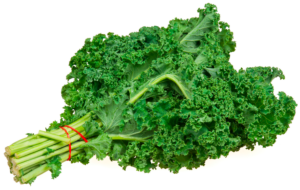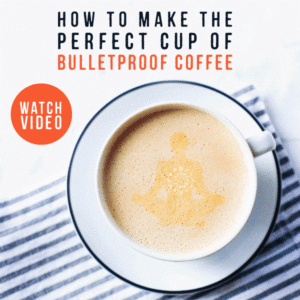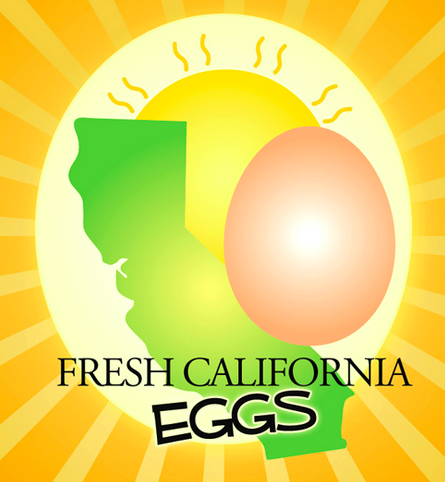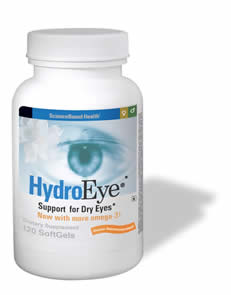The 5 Best Foods for Your Eyes
Hey everyone! I decided that this month I wanted to cover the topic of food, but not just any food! This article will cover my personal favorite foods and how they correlate to eye health. Hold on tight because this article will reference numerous clinical studies, along with my personal opinions and recipes.
I find that lots of the food described in this article is available at farmers markets in San Diego, and even Lakeside. There is nothing better than finding these healthy foods at a local organic market here in San Diego. Here are a list of local San Diego farmers markets where you can obtain some of these great foods.
Kale
Kale is a very healthy vegetable and one that supports eye health.
 If you are trying it for the first time get ready for an interesting taste! For me, it was an acquired taste and I really didn’t enjoy it at first, but now I crave it. It makes regular lettuce taste like a mixture of water and air…
If you are trying it for the first time get ready for an interesting taste! For me, it was an acquired taste and I really didn’t enjoy it at first, but now I crave it. It makes regular lettuce taste like a mixture of water and air…
The best parts about kale is that it has over 200% of the recommended dietary allowance of vitamin A.
Vitamin A turns into Beta Carotene, an important compound for sustaining healthy retinas. When in combination with other antioxidant vitamins, Beta Carotene plays a role in decreasing the risk of age-related macular degeneration (AMD). In the Age-Related Eye Disease Study (AREDS), people at high risk for the disease had a 25 percent reduced risk of advanced AMD during a six-year period which supplemented with vitamin A (as beta carotene), vitamin C, vitamin E, zinc and copper.
The next best thing about kale and your eyes is that it is packed with lutein and zeaxanthin, which are carotenoid antioxidants.
The sensory part of your eye is called the retina and it is made up of very particular photopigments called Lutein and Zeaxanthin! Of the hundreds carotenoid pigments found in nature, only Lutein and Zeaxanthin are deposited in high quantities in the macula of the eye.
In the AREDS study I mentioned above, Lutein and Zeaxanthin, plus the original AREDS formula reduced advanced AMD by 10%. It also reduced progression to advanced AMD by 26% in patients with the lowest dietary intake of Lutein and Zeaxanthin.
- This is by far the best post about Kale that I have seen when it comes to advice for people who eat lots of kale.
- This is the best post about the clinical studies behind kale.
Coffee
 Coffee has been clinically shown to support eye health and systemic health. Drinking coffee is significantly correlated with elevated levels of dietary zeaxanthin, β-carotene, and α-carotene – all nutrients that help support your eyes!
Coffee has been clinically shown to support eye health and systemic health. Drinking coffee is significantly correlated with elevated levels of dietary zeaxanthin, β-carotene, and α-carotene – all nutrients that help support your eyes!
By the way, there are no shortages of great coffee spots here in San Diego. I love Better Buzz and Birdrock Coffee Roasters to name a few.
In 2012, the New England Journal of Medicine published a study that followed 402,260 individuals for 12 years. The results showed us that those who drank 4-5 cups per day were the least likely to pass away. Men had a 12% reduced risk and women a 16% reduced risk. One cup per day resulted in a 5-6% reduction in risk of death. By the way, decaf and caffeinated coffee appeared to have the same effect.
Coffee with added sugars and artificial sweeteners is not the way to go and I would avoid it at all costs. Here is more on the topic of how to drink clean coffee.
Eggs
 I eat three eggs, every morning, about 5 days per week. Bottom line, if you don’t have an allergy to eggs or some other contraindication, then you should really consider eating them, simply because they have so much Lutein and Zeaxanthin.
I eat three eggs, every morning, about 5 days per week. Bottom line, if you don’t have an allergy to eggs or some other contraindication, then you should really consider eating them, simply because they have so much Lutein and Zeaxanthin.
Remember we talked before about Lutein and Zeaxanthin? Well guess what? Eggs are loaded with these great antioxidants, which are found mostly in the yolk, not the whites.
Lutein and Zeaxanthin antioxidants have been found to significantly reduce the risk of Macular Degeneration and Cataracts, which are among the leading causes of vision impairment and blindness in the elderly.
This study also showed that eating 1.3 egg yolks per day for 4.5 weeks increased blood levels of Zeaxanthin by 114-142% and Lutein by 28-50%.
Fish
I was never a big fan of fish and I really had to push myself to eat it. Even today, it still isn’t my favorite but I make sure I get fish in my diet at least a few times per week. The health benefits are tremendous. For the purposes of this article, I will talk about Salmon because of its omega-3 content.
Omega-3’s are essential for healthy brain function and for lowering your risk of disease. In addition to omega-3’s, fish and especially salmon, have large amounts of Magnesium, Potassium, Selenium and other Vitamins.
Studies show that the people who eat fatty fish regularly have a lower risk of heart disease, dementia, depression and a plethora of common diseases (3, 4, 5, 6). – AuthorityNutrition.com
The contents of omega-3’s found in fish are EPA and DHA. According to studies published in the journal Pediatrics, healthy pre-term infants who were provided with DHA-supplemented baby formula showed much better visual acuity at 2 and 4 months of age, compared with pre-term infants who were fed non-omega-3 baby formula.
I also found a study published in the American Journal of Clinical Nutrition, where infant girls whose mothers received the omega-3 component DHA, from their 4th month of pregnancy until the babies were delivered were less likely to have below-average visual acuity at 2 months of age than infant girls whose mothers did not receive the omega-3 supplements.
One thing I do here at Lakeside Optometry in Lakeside California is prescribe an omega-3 called Hydroeyes. I use it specifically for dry eye patients and it has profound results.
Conducted by the highly respected cornea researchers, John D. Sheppard, MD, MMSc and Stephen C. Pflugfelder, MD, the study found that HydroEye, compared to a placebo, provided significant benefits related to dry eye symptoms, important cellular markers, and ocular surface smoothness in 38 post-menopausal women over 6 months. The study was published in Cornea Journal, in July, 2013. – Hydroeyes
In Summary
To summarize, I hope my patients think about this list of foods and adopt some of the choices for themselves. Also, become your own scientist, do your own research and find out what other healthy foods exist for your eyes, mind and body. I can’t stress enough how a healthy diet can help you to avoid eye disease and keep your eyes comfortable and your vision sharp.
Warmly,
Dr. Matt Geller
If you’re looking for quality eye care with a personal touch, call our Optometrists, Dr. John Fleming and Dr. Matt Geller at 619-443-1075.
Lakeside Eyecare
9710 Wintergardens Blvd., Suite A
Lakeside, CA 92040
Phone: 619-443-1075
Click Here to Schedule an Eye Exam
Optometrists Dr. John Fleming and Dr. Matthew Geller in San Diego serving Lakeside and Spring Valley.
